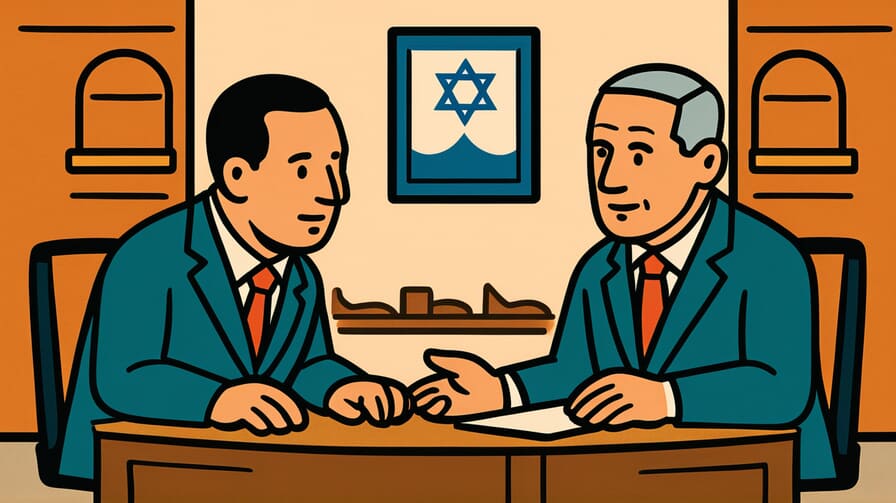[Disclaimer] This article is reconstructed based on information from external sources. Please verify the original source before referring to this content.
News Summary
The following content was published online. A translated summary is presented below. See the source for details.
Australian Prime Minister Anthony Albanese appeared on ABC’s 7:30 program for an exclusive television interview. The interview, conducted by host Sarah Ferguson, focused on Australia’s stance regarding the recognition of a Palestinian state. Albanese stated that Australia would not be driven by a specific timeframe for recognition, but rather by when such recognition could contribute to the creation of two states. He emphasized the need for both Israeli security and Palestinian aspirations to be addressed. The Prime Minister noted recent developments, including statements by the Palestinian Authority recognizing Israel and committing to democratic elections. Albanese stressed the importance of a demilitarized state in Gaza and the West Bank as a step towards achieving peace in the region. He also highlighted the need for surrounding Arab states to recognize Israel’s legitimacy.
Source: Australian PM Media Centre
Our Commentary
Background and Context

The Israeli-Palestinian conflict has been a long-standing issue in international politics. The concept of a two-state solution, which proposes an independent Palestinian state alongside Israel, has been a central focus of peace efforts for decades. Australia, like many Western nations, has historically supported this approach while maintaining strong ties with Israel.
Expert Analysis
Prime Minister Albanese’s statements reflect a cautious yet evolving approach to the Palestinian question. This stance is significant for several reasons:
Key points:
- Australia is signaling a potential shift in its policy, moving towards recognizing Palestine as part of the peace process rather than as its end result.
- The emphasis on Israeli security alongside Palestinian aspirations indicates a balanced approach, crucial for maintaining regional relationships.
- By not committing to a specific timeline, Australia retains diplomatic flexibility while still supporting the two-state solution.
Additional Data and Fact Reinforcement
To better understand the context of Australia’s position, consider these facts:
- As of 2023, 139 out of 193 UN member states recognize Palestine as a state.
- The last direct peace talks between Israel and Palestine broke down in 2014.
- Australia’s trade with Israel was valued at AUD 1.1 billion in 2020-21, highlighting the economic ties at stake.
Related News
This interview comes amid ongoing tensions in the Middle East, particularly following recent conflicts in Gaza. It also aligns with broader international discussions on the Israeli-Palestinian issue, including efforts by other nations to revive peace talks and address humanitarian concerns in the region.
Summary

Prime Minister Albanese’s interview signals a nuanced evolution in Australia’s approach to the Israeli-Palestinian conflict, balancing support for a two-state solution with careful diplomatic considerations. While not committing to immediate recognition of Palestine, Australia appears to be laying the groundwork for potential future shifts in its policy, dependent on regional developments and peace prospects.


